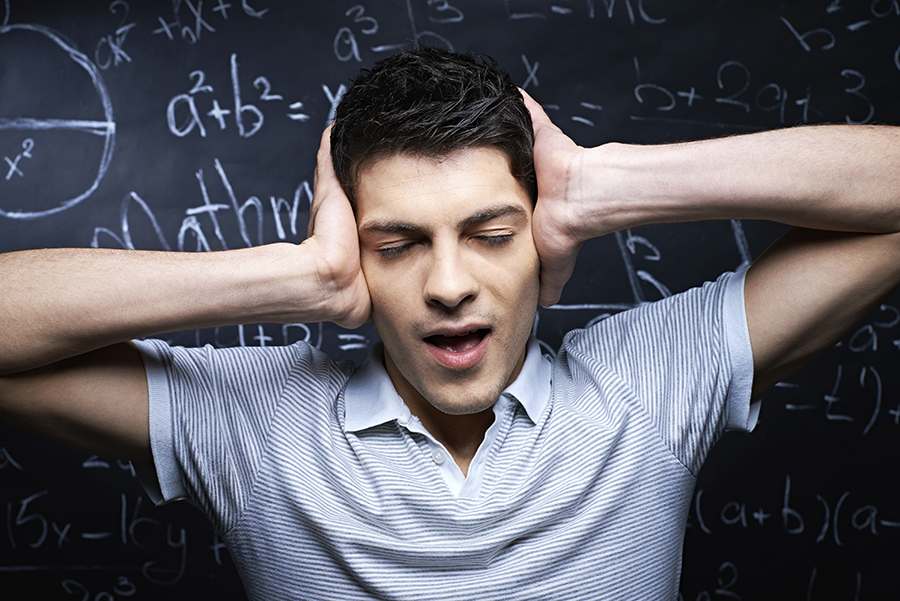
(This content is being used for illustrative purposes only; any person depicted in the content is a model)
Author: Justin Mckibben
The term ‘smart drugs’ almost seems like an oxymoron to anyone with experience with addiction or recovery, but these medications are typically prescribed to improve one or more aspects of mental function such as:
- Working memory
- Motivation
- Attention
Medications like Adderall that are typically prescribed for disorders like Attention Deficit Hyperactivity Disorder (ADHD) would be considered ‘smart drugs’, but are they really that smart? For those who need them and when they are used properly these medications can be extremely helpful.
On the other hand, those who abuse these medications run a great risk. Also called ‘study drugs’ by students who abuse them as a means of staying up to study or do homework, these medications affect people differently. ‘Smart drug’ addiction treatment is all about understanding those risks, and overcoming dependence built on substances that do us more harm than good, if any at all.
Smart Drug Addiction Treatment: Prescriptions
The symptoms of ADHD include difficulty focusing, controlling impulsive behavior and stopping fidgeting. Doctors describe this last symptom as over-activity or hyperactivity. Its symptoms often continue into adolescence and adulthood. ADHD is common too: The disorder affects 9% of American children between the ages 13 and 18.
Research has shown ‘smart drugs’ can be used to effectively treat ADHD, such as:
- Adderall
- Vyvanse
- Ritalin
- Concerta
These medicines help patients avoid distractions and stay focused during important tasks, including schoolwork. Many people who end up in smart drug addiction treatment actually start off taking these medications as prescribed, but later develop habits from abusing their medications.
These ‘study drugs’ actually are stimulants. These medicines can have an effect similar to caffeine: They “stimulate” the brain. However, stimulants can have a calming effect on children. This stimulating affect is why most students abuse this medication.
Smart Drug Addiction Treatment: Study Drug
Students may see ADHD drugs as a way to enhance their mental performance. They may think misusing the drugs helps them do their best in their studies. However, research shows that students who misuse prescription drugs get worse grades over time than do students who don’t take study drugs.
There’s actually very little evidence that the drugs actually improve academic performance in any capacity, but students who use it and feel it keeps them alert and awake may misunderstand that stimulant as a ‘study drug’ secret weapon.
Ironically, typically students report they find themselves absorbed in cleaning their rooms rather than studying. ‘Smart drug’ addiction treatment can also help people to understand and find new ways to focus their energies.
Smart Drug Addiction Treatment: Symptoms of Addiction
One major problem with long term abuse of ‘smart drugs’ or ‘study drugs’ is that the brain becomes overexcited over an extended period of time, and some people experience psychosis and hallucinations after many years of taking strong stimulants drug. In a smart drug addiction treatment program you have an opportunity to adequately assess your mental health, and learn healthier ways to support it.
Memory loss is also a common occurrence among people who have been abusing smart drugs. Smart drug addiction treatment centers do what is necessary to identify these issues and do everything to promote healthy rehabilitation.
- Nervousness
- Restlessness
- Paranoia
- Hallucinations
- Aggression
- Shortness of breath
- Seizures
- Uncontrollable shaking
- Headache
- Difficulty sleeping
- Changes in sex drive
- Nausea
- Stomach pain
- Heart Problems
- Loss of appetite
Smart drug addiction treatment helps individuals to identify the health risks that they have taken, and to help establish healthier life-style to regain balance after the damage that creates these symptoms.
Smart Drug Addiction Treatment: Withdrawal
The withdrawal effects of smart drugs can make it difficult to stop abusing them, which is why many addicts find it difficult to enter into recovery. The following are some of the withdrawal affects common to most smart drugs.
- Cravings
- Agitation
- Depression
- Psychosis
- Anxiety
- Restlessness
- Trouble sleeping
Through the course of smart drug addiction treatment, especially during medical detox, each individual will be given assistance, when necessary using non-narcotic medications, to provide the most comfort during this transition.
Smart Drug Addiction Treatment: Treatment Options
Smart drug addiction treatment offers several levels of care for people seeking help with their substance abuse. These levels of care include:
- Medical Detox
- Inpatient
- Intensive Outpatient (IOP)
- Aftercare Options
Each level of care gives the individual an opportunity to receive a variety of therapy options to help them transition between phases of smart drug addiction treatment.
- Medical detox provides a safe and effective way to separate from the substance with the help of maintenance medications
- Inpatient gives hands on approach to therapy and continued medical treatment
- Outpatient grants more freedom while still keeping with the regular therapy and recovery related courses, and aftercare gives people the chance to attended continued therapy and relapse prevention work after treatment
The so-called ‘smart drugs’ or ‘study drugs’ are not anywhere near worth the trouble they can create for people who abuse them. College students especially have a habit of getting hooked on using stimulants or ‘study drugs’ because they think these are actually giving them a leg-up. In the end it only makes things worse. Usually much, much worse once you have developed a habit.
People believe that their smart drug addiction is only a physical dependence, or even a necessity for a condition, but in reality they have surpassed their own reservations and continue to abuse stimulants that are very dangerous. Smart drug addiction treatment is all about helping those people to find a way to live without those strings attached. If you or someone you love is struggling with substance abuse or addiction, please call toll-free 1-800-951-6135